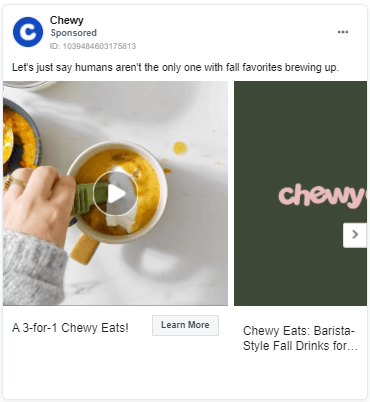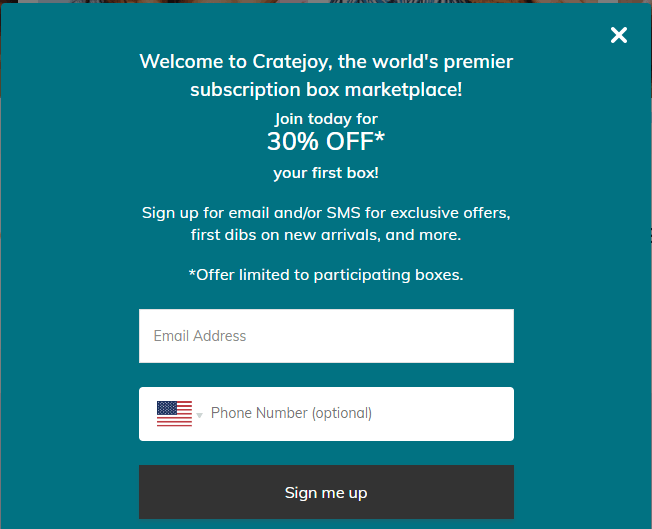-
 18 min. read
18 min. read
-
 Macy Storm
Macy Storm Senior Content Creator
Senior Content Creator
- Macy is a marketing writer with over five years of experience creating content for dozens of industries including food and beverage, home services, and education. She also specializes in creating SEO and PPC content. Her work has been featured by Search Engine Journal, HubSpot, Entrepreneur, Clutch, and more. In her free time, Macy enjoys trying new crafts and reading comic books.
If you’re part of the 29% of small businesses that are just getting started with your marketing campaign, you may feel confused about where to start. After all, if you don’t have experience with online marketing for small business strategies, you may not know which strategies will drive the best results. To help you get started with small business online marketing, we’ve created this guide for how to market you small business online to help you discover the right strategies to grow your business.
Keep reading to learn more! P.S. Want to get some insider tips and tricks for marketing your business online? Join 200,000+ marketers by subscribing to Revenue Weekly!
Hear from HydroWorx, who saw a 236% increase in organic sessions with WebFX services.WebFX is a partner businesses trust.


1. Create a beautiful site to make a positive first impression
Did you know that 94% of first impressions come from web design? If you want to do online marketing for small business right, you need to start by building a beautiful website to impact your audience positively. Not to mention, 75% of website credibility comes from your site’s design.
Your website is the heart of your digital marketing strategy, so make sure you dedicate time and effort to make it functional and aesthetically pleasing. So, how do you build a beautiful site that your audience will love?
- Integrate your brand’s unique style: Don’t settle for a cookie-cutter pre-made design that looks like hundreds of other businesses ’ designs. Build a custom web design that integrates your brand’s unique colors and styles to help you stand out in the crowd.
- Make sure it’s mobile-friendly: Your audience will access your site from numerous devices, so you need to ensure you have a mobile-friendly site to keep them engaged. Integrating responsive design will ensure your site adapts to all devices.
- Utilize visuals: Visuals are a critical component for getting leads to engage on your site. Integrate images and videos throughout your site to keep your audience interested and engaged on your site.
- Create easy-to-use navigation: Your navigation helps your audience move about your site and find the products they desire. Use broad headings and subcategories to help you organize your pages on your site and make it easy for your audience to find what they need.
All these components are critical to helping your site rank in search results. Google’s algorithm operates on a mobile-first index, which means that the quality of your mobile site is a critical factor in your site’s ranking. By integrating responsive design, you create a mobile-friendly website that can rank better in search results. Additionally, having an aesthetically pleasing design, combined with easy-to-use navigation and beautiful graphics, helps you create a site that users want to spend time on and engage with.
As a result, this increase in dwell time will send a positive signal to Google that your site is relevant, which leads to better rankings in search results.
2. Invest in search engine optimization (SEO) to drive traffic for your online business
Internet marketing for small business also involves boosting your presence on search engines. Considering 93% of all online experiences start with a search engine, you must optimize your site to appear in search results and attract relevant traffic to your site. Search engine optimization (SEO) helps your business rank in search results by optimizing your site, which leads to more valuable traffic finding your business.
Here’s how you can get started with small business SEO:
Conduct keyword research
To allow your site to appear in relevant search results, you need to optimize your site for applicable key terms. To find relevant terms, you need to conduct keyword research. You can use a keyword research tool like KeywordsFX to find relevant terms for your website.
When you conduct keyword research, focus on long-tail keywords, since they are more specific and target users who know exactly what they’re looking for. For example, if someone searches “mug,” the search intent isn’t clear. The searcher could be looking for a regular coffee mug or travel coffee mug, amongst other products.
When someone searches “insulated coffee mug,” on the other hand, you have a clearer idea of what they want to find. So, you’ll attract more interested and qualified leads to your page by focusing on long-tail keywords.
Check site speed & ensure your site loads quickly
If you want to rank in search results, your site needs to load quickly. Your audience doesn’t want to wait for your site to load — 53% of users will abandon a page if it takes more than three seconds to load.
You can check your website’s load time by using a tool like Google PageSpeed Insights. This tool enables you to see how fast your site currently loads, and it provides suggestions for improvement. Some ways to improve your site’s load time include:
- Compress image file sizes
- Use browser caching
- Minify your code
- Use a content distribution network (CDN)
If you don’t have experience editing your site’s backend, you may want to consider investing in page speed services from a digital marketing company.
Build backlinks
Backlinks are a critical component to helping boost your website’s ranking in search results. Backlinks are links to your site from other authority sites. These links are valuable to your business because they help build your site’s trust and authority.
If reputable sites link back to your page, it sends a positive signal to Google that your content is relevant and trustworthy. Additionally, it helps drive more credible traffic to your site. So, how do you earn backlinks?
The best way to earn backlinks is to create valuable content. We’ll dive into this a little more later, but generally, creating content like blog posts is very helpful in earning links for your business. If you create valuable content on industry-related content, industry authorities are more likely to link to it.
When you create valuable content, reach out to industry authorities, and invite them to check it out. If they like what they see, they may link to it in future content. You can also reach out to companies with broken links on their site and offer to replace the broken link with a similar article you have on your site.
It helps solve the issue of them having a broken link while helping you earn a link for your business.
3. Use local SEO to market to people in your city
When you do Internet marketing for small business, you don’t want to forget your local customers. To help you reach more people in your local area, you need to invest in local SEO. This strategy encompasses all the best SEO practices but adds a few more best practices that cater specifically to local leads.
Here are a few local SEO tactics you’ll want to use:
- Optimize your Google Business Profile listing: Your Google Business Profile listing appears in local search results when someone searches for a business in your area. You’ll want to claim your listing and fill out all the information, like your hours of operation, location, and a description of your business.
- Optimize for local keywords: Local keywords typically include a location in them, like “pizza restaurant in Los Angeles.” Optimizing for these keywords will help you rank in search results for local businesses.
- Ensure all your local listings are consistent: Whether you’re listed on Yelp or YellowPages or Google, you want to make sure your name, address, and phone number are consistent on every page. You can use a tool like LocalFX to manage all your local listings.
4. Use content marketing to share valuable knowledge with your audience
One of the best online marketing strategies for small business is content marketing. Content marketing offers an opportunity for you to share useful information with your audience that they want while enabling you to establish yourself as an authority in your field by sharing your expertise. Content comes in numerous formats, from videos to infographics to ebooks.
One of the most impactful content marketing tactics is blogging. To start blogging, you need to first generate a list of topics. Think of common questions you get about your industry or business and use that as inspiration for content topics you can cover.
Additionally, you can see what your competitor’s blog about or use a tool like Google Trends to see what’s trending. Once you identify topics for your blog, you can schedule when you’ll write them. Using a content calendar is an excellent way for you to plan when you create content.
It also ensures you’re publishing content throughout the month, so you create consistent opportunities to drive traffic to your site. When you write each piece of content, make sure you conduct keyword research to find relevant terms. Your keywords will dictate how you write about a blog topic.
As you create your blog posts, make sure you’re integrating relevant keywords throughout your content. Don’t incorporate them too often, as it will lead to keyword stuffing and hurt your site’s ranking in search results. By creating blog posts for your business, you’ll help your small business establish itself as an authority in your field and drive more valuable traffic to your site.
5. Build a presence on social media platforms to connect with interested leads
If you do small business online marketing, your strategy won’t be complete without social media. When making a purchase, 74% of people use social media to help them decide if they should purchase. These platforms are valuable to help you deliver information directly to your audience that can get them to convert.
To get started with social media for your small business, start by choosing your platforms. You can choose from popular platforms like:
You’ll want to choose platforms where your audience spends most of their time. You can look at the demographics for each platform to help you decide which one(s) will work best. Once you figure out your platforms, start posting!
You can post multiple types of content to engage your audience. Here’s a breakdown:
- Facebook: Photos, text posts, links to content, videos, GIFs
- Instagram: Photos and videos
- Twitter: Photos, videos, links to content, text posts, GIFs
- Pinterest: Photos, videos, GIFs
- LinkedIn: Text posts, photos, videos, links to content, polls
To get the most out of your social media, post content often. The exact frequency will depend upon your platform and your audience, so it may take some experimenting to figure out what works best for your business. Social media is a great place for you to build brand awareness and reach new people who haven’t discovered your business yet.
By building a presence on social media, you’ll help your small business connect with people most interested in your products or services and deliver valuable information that gets them to engage with your company.
6. Run social media ads to reach interested leads that haven’t discovered you yet
One of the most effective online marketing strategies for small businesses is social media advertising. Social media ads appear in targeted users’ newsfeeds. These posts appear like organic posts that a user would see in their feed.
 Social media ads offer advanced targeting, which enables you to reach people who haven’t discovered your business yet. To start running successful social media advertising campaigns, follow these best practices:
Social media ads offer advanced targeting, which enables you to reach people who haven’t discovered your business yet. To start running successful social media advertising campaigns, follow these best practices:
- Segment your audience: Creating audience segments will enable you to create tailored ad campaigns. You can deliver ad content that’s most relevant to your audience’s different members, making a more desirable ad experience.
- Use different ad formats: Each social media platform offers different advertising formats. From photo ads to carousels ads, you’ll want to experiment with your format to see what garners the most engagement for your business.
- Use high-quality visuals: Your photos and videos should not be grainy or stretched. People won’t click on an ad with low-quality visuals because it won’t look trustworthy. Using high-quality multimedia will help you earn more clicks on your ads.
- Watch out for ad fatigue: As you continue to show your ads, people will eventually stop engaging with your ad content. They get tired of seeing the same ads, so you may need to switch up your ad content or visual to get them to reengage. You can track ad performance to spot ad fatigue.
7. Participate in forums to build brand recognition and authority
In addition to social media platforms, another valuable resource for your online marketing for your small business is forums. Forums are where people gather to ask questions, share information, and have discussions. Some of the most popular forums include Reddit and Quora.
You can use these forums to answer industry-related questions that people have. It’s an excellent way to establish yourself as an authority in your field while exposing people to your brand. However, you’ll want to avoid using these forums to promote your business.
These forums are a place to obtain information, not to have a company advertising their products or services. You need to be tactful with your approach and ensure that you’re not self-promoting in these forums. Just answering someone’s questions can help people see you as a trusted expert and get them to check out your business.
8. Look into third-party selling sites to get more sales for your small business
Next on our list of online marketing strategies for a small business involves looking at third-party sites to sell your products or services. Third-party sites are an excellent way for you to reach people who haven’t found your business yet and get them to check out your business.
Third-party sites for retailers
If you want to find new places to sell your products, you’re in luck! There are many great third-party sites you can use to sell your products.
Additional Readings
Third-party sites for service providers
If you provide a service for your customers, like plumbing or electrical work, you can use numerous third-party sites to try and garner new leads. Depending upon your service, you may not qualify to build a profile on these sites, so you’ll need to do some investigating! Popular third-party sites for service companies include:
- Angie’s List
- Houzz
- Task Rabbit
Additional Readings
9. Run pay-per-click (PPC) ads to attract leads that convert
When you do small business online marketing, you want to invest in strategies that help you drive leads that convert. Pay-per-click (PPC) advertising is one of the best strategies for driving qualified leads that want to buy your products. These paid advertisements appear at the top of the search results above organic listings.
You’ll see these listings tagged with the word “ad” to indicate paid content.  Small business PPC ads help you put your business at the top of the search results, so more people click on your listing. It also enables you to increase brand exposure for your small business because, even if people don’t click, they still see your brand in the search results.
Small business PPC ads help you put your business at the top of the search results, so more people click on your listing. It also enables you to increase brand exposure for your small business because, even if people don’t click, they still see your brand in the search results.
Here’s what you need to do if you want to add PPC to your internet marketing strategy for small business:
- Find relevant long-tail keywords: Like SEO, long-tail keywords are fundamental for PPC. Not only do they drive more qualified traffic because they’re specific, but these keywords also keep your cost-per-click (CPC) low due to less competition.
- Create compelling ad copy: Your ad copy is what drives your audience to click on your ad and engage with it. You want to ensure you’re delivering valuable and relevant information that convinces your audience to convert.
- Custom landing pages: Don’t just direct your audience to page on your site. If you want to get the most from your PPC ads, create custom landing pages that focus solely on the ad content to deliver a more tailored experience.
- Analyze ad success: When you launch a PPC campaign, it’s critical that you track your ad performance to see if your ads drive success. If you aren’t seeing the results you desire, adjust your ad copy or landing page to try and improve ad performance.
- Adjust budget as necessary: After analyzing your ad campaigns, you may find that some keywords perform better than others. Consider adjusting your budget to spend more on ads that drive results and pull back on ads that don’t perform as well.
10. Manage your online reviews to create positive customer experiences
People rely on reviews and others’ experiences to help them determine if they should buy a product or use a service. In fact, 92% of users trust recommendations over a brand. Your customers can review you on numerous platforms, from Google to Facebook.
You want to ensure that you take the time to read it and respond if someone leaves a review. Of course, you’ll receive positive and negative reviews on your profile, and you should respond to them regardless of which category they fall under. When someone leaves you a positive review, thank them for their kind words and encourage them to shop with you again.
Something as simple as saying, “We’re glad you enjoyed your [product name]! Thanks for buying!” can go a long way in building a positive relationship with your audience. For negative reviews, you’ll want to respond in a calm manner and let the reviewer know that you’re sorry for their bad experience.
Respond calmly, apologize, and offer a solution. When you offer a solution, follow through on it. Providing good customer service goes a long way in getting customers to come back and building confidence with new shoppers.
If you’re feeling overwhelmed while trying to manage and respond to reviews, you can always invest in review management services to take some of the work off your plate.
11. Use email marketing to nurture leads towards converting
If you want to know how to market your business online, start by creating an email marketing campaign. Email marketing for small businesses is an excellent tactic for you to deliver information directly to people interested in your business. To get started with email marketing, you need a subscriber list.
You can obtain subscribers by adding an email sign-up bar or email pop-up to your site. Here you can see an example of an email sign-up bar:  This example highlights an email pop-up from Cratejoy’s website:
This example highlights an email pop-up from Cratejoy’s website:  Once you have a list of subscribers, you’ll want to follow these email marketing best practices to help you drive success with your campaign:
Once you have a list of subscribers, you’ll want to follow these email marketing best practices to help you drive success with your campaign:
- Segment your audience: Not everyone is interested in your business for the same reasons. By segmenting your audience, you deliver email content that’s aligned with their interests. You’ll make your subscribers more likely to engage when they receive relevant content.
- Personalize your emails: Delivering personalize emails makes your audience more likely to engage with your content. Whether you’re curating products or using a subscriber’s name in your email, you can deliver a more personalized experience that results in more sales.
- Optimize your subject lines: You need to write good subject lines to get your audience to click on your emails. Test different subject lines to find the best one and use that subject line to entice users to click on your emails.
12. Use marketing automation to make your campaigns a breeze
When you do small business online marketing, it’s easy to get overwhelmed trying to manage all your campaigns. To make your campaigns easier to manage, you’ll want to consider using marketing automation tools that will help make your life easier. Some great marketing automation tools include:
- MarketingCloudFX: To manage leads and monitor your marketing campaigns
- MyEmailFX: To help you create, manage, and monitor your email campaigns
- Buffer: Social media automation to schedule social media posts in advance
- Hootsuite: Another social media automation tool to help you post and monitor social posts
- Nutshell: To help you maintain customer information to boost more sales
Using these types of tools will help automate tasks that are tedious or time-consuming. It will afford you more time to focus on more critical aspects of your campaigns. Good agencies have more than 50 testimonials. Great agencies have more than 100 testimonials.WebFX has over 1,100+ glowing client testimonials.
See What Makes Us Stand out 

Get help with small business online marketing
Small business online marketing is an excellent way to promote your business online and reach more qualified leads for your business.
If you’re feeling overwhelmed with trying to market your small business, WebFX can help. We’re a full-service digital marketing company that offers everything you need to grow your business online. In the past five years, we’ve driven over $6 billion in sales and over 24 million leads for our clients.
You can feel confident that we’ll drive results for your business too. Ready to start building your digital marketing strategy? Contact us online or call us today at 888-601-5359 to speak with a strategist about our digital marketing services!
-
 Macy is a marketing writer with over five years of experience creating content for dozens of industries including food and beverage, home services, and education. She also specializes in creating SEO and PPC content. Her work has been featured by Search Engine Journal, HubSpot, Entrepreneur, Clutch, and more. In her free time, Macy enjoys trying new crafts and reading comic books.
Macy is a marketing writer with over five years of experience creating content for dozens of industries including food and beverage, home services, and education. She also specializes in creating SEO and PPC content. Her work has been featured by Search Engine Journal, HubSpot, Entrepreneur, Clutch, and more. In her free time, Macy enjoys trying new crafts and reading comic books. -

WebFX is a full-service marketing agency with 1,100+ client reviews and a 4.9-star rating on Clutch! Find out how our expert team and revenue-accelerating tech can drive results for you! Learn more
Try our free Marketing Calculator
Craft a tailored online marketing strategy! Utilize our free Internet marketing calculator for a custom plan based on your location, reach, timeframe, and budget.
Plan Your Marketing Budget
Table of Contents
- 1. Create a Beautiful Site to Make a Positive First Impression
- 2. Invest in Search Engine Optimization (SEO) to Drive Traffic for Your Online Business
- Conduct Keyword Research
- Check Site Speed & Ensure Your Site Loads Quickly
- Build Backlinks
- 3. Use Local SEO to Market to People in Your City
- 4. Use Content Marketing to Share Valuable Knowledge with Your Audience
- 5. Build a Presence on Social Media Platforms to Connect with Interested Leads
- 6. Run Social Media Ads to Reach Interested Leads That Haven’t Discovered You Yet
- 7. Participate in Forums to Build Brand Recognition and Authority
- 8. Look into Third-party Selling Sites to Get More Sales for Your Small Business
- Third-party Sites for Retailers
- Third-party Sites for Service Providers
- 9. Run Pay-per-click (PPC) Ads to Attract Leads That Convert
- 10. Manage Your Online Reviews to Create Positive Customer Experiences
- 11. Use Email Marketing to Nurture Leads Towards Converting
- 12. Use Marketing Automation to Make Your Campaigns a Breeze
- Get Help with Small Business Online Marketing

Maximize Your Marketing ROI
Claim your free eBook packed with proven strategies to boost your marketing efforts.
Get the GuideTry our free Marketing Calculator
Craft a tailored online marketing strategy! Utilize our free Internet marketing calculator for a custom plan based on your location, reach, timeframe, and budget.
Plan Your Marketing Budget





